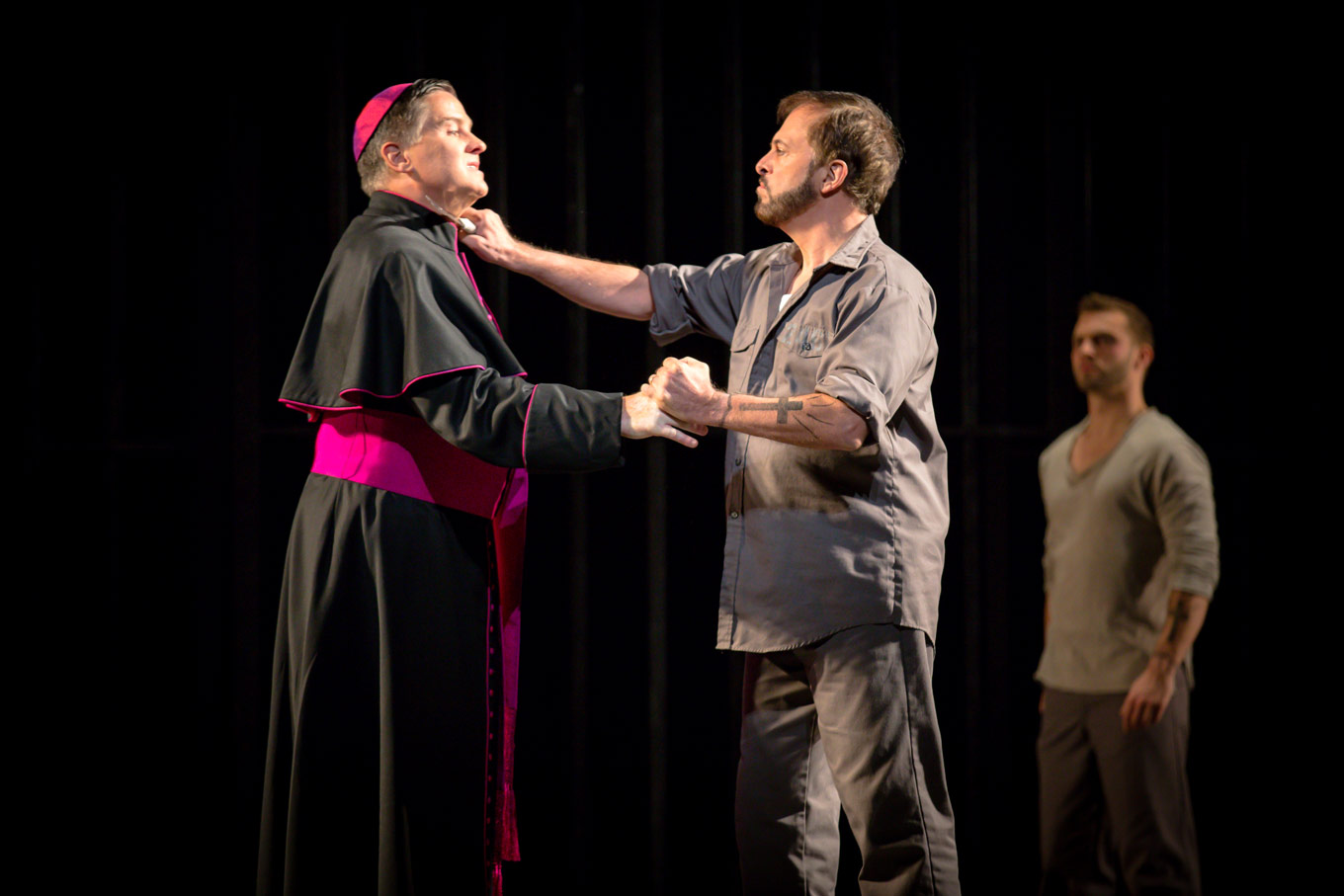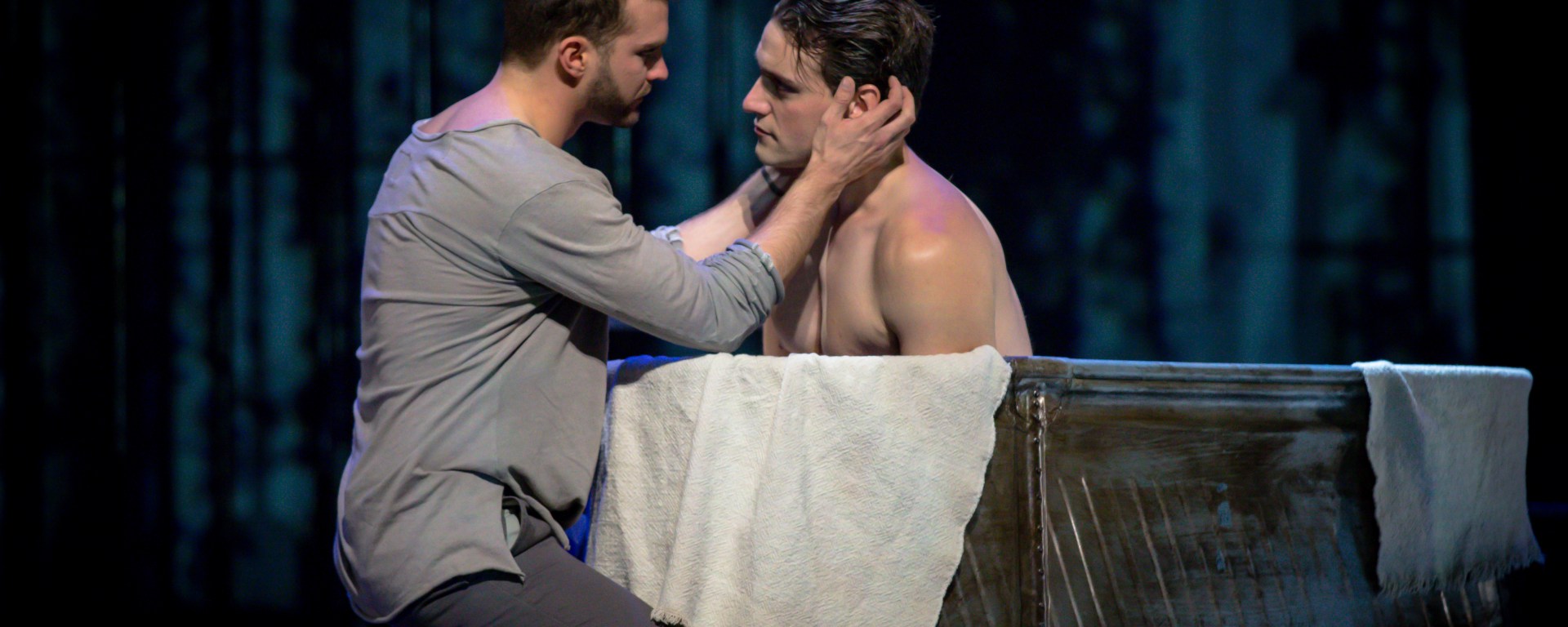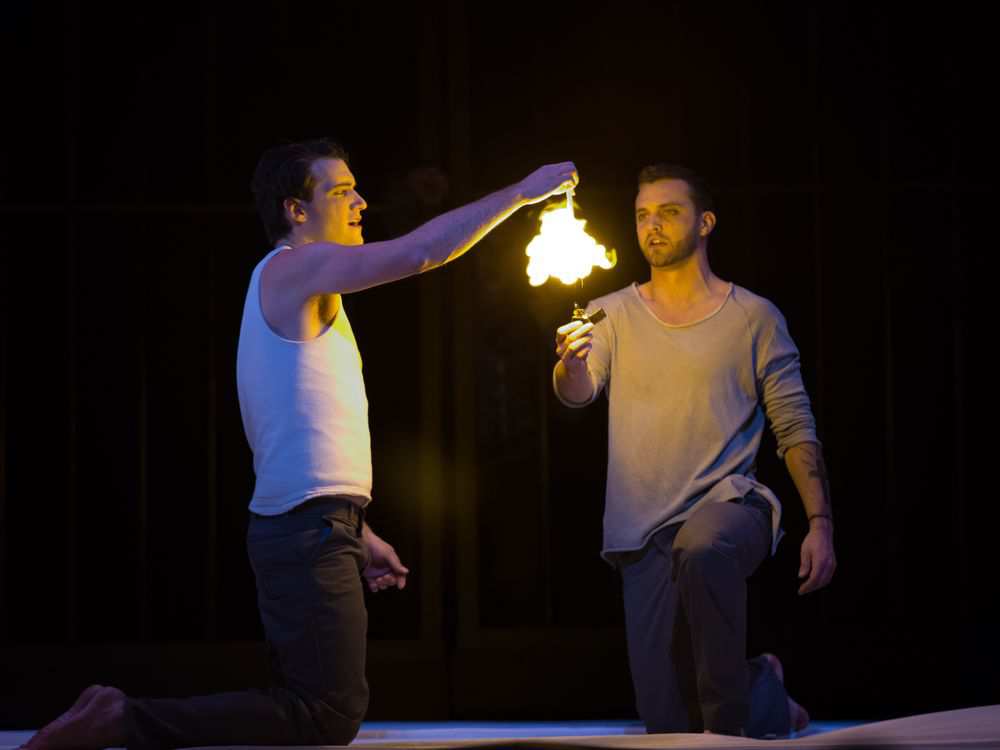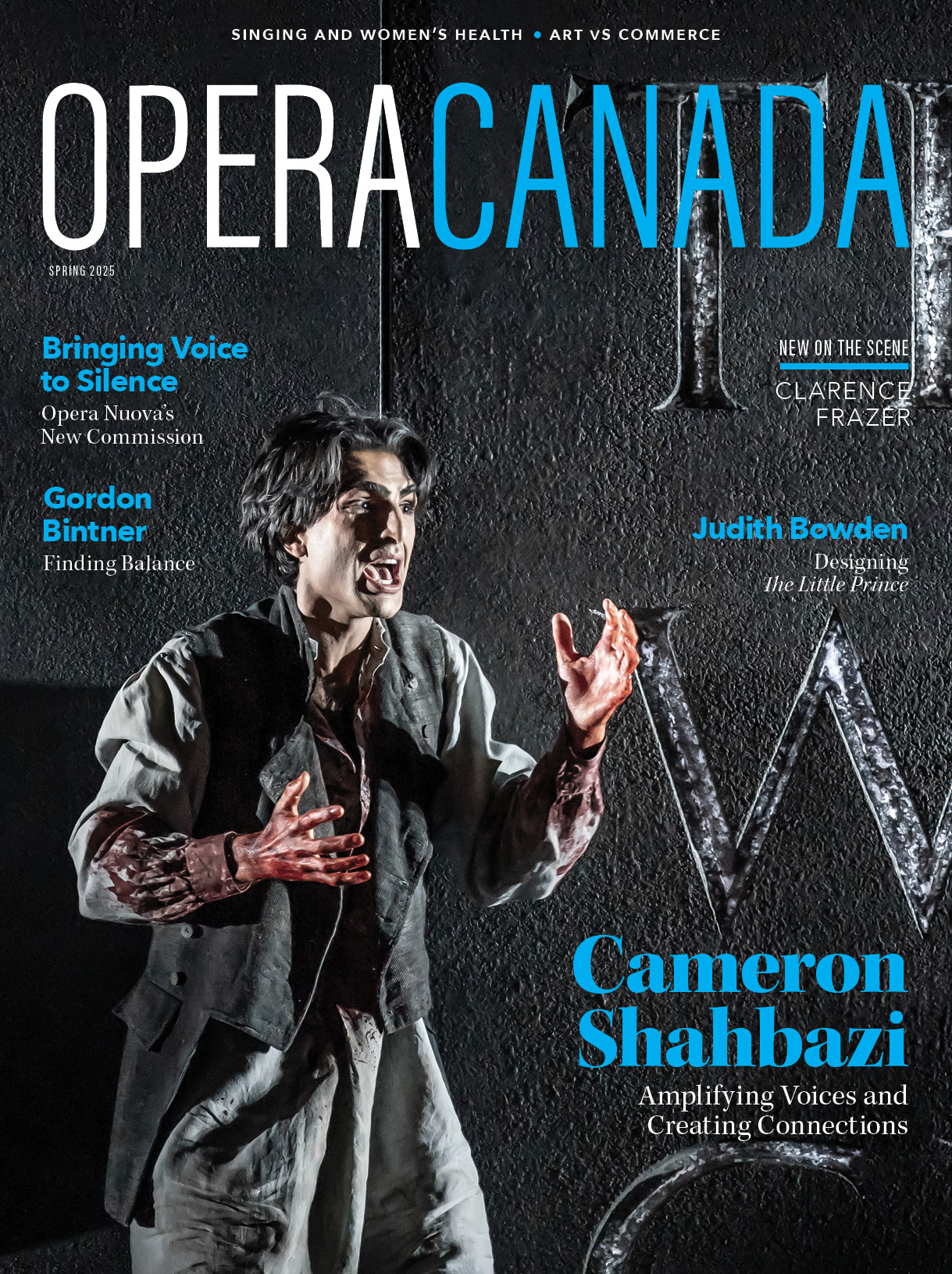Canada has produced few large-scale, ‘grand’ operas, and Edmonton Opera, just recently emerging from almost fatal financial difficulties, has previously staged just one main stage 21st century opera, John Estacio’s Filumena. Les Feluettes (Lilies), which centres on a gay love story, is radical not only in its newness, but also because it introduces Edmonton Opera patrons to what is still a (somewhat) controversial theme.
The risk of such a venture was obvious, but the now-stable company opened its 54th season of three productions on Oct. 21 with this departure from its standard assortment of operetta and opera chestnuts. The box office implications of this creative defiance of the odds remain to be seen, but the production of Australian composer Kevin March and librettist Michel Marc Bouchard’s story of repression and social oppression of homosexual men in early 20th-century Catholic Québec was credible, serious entertainment, and even somewhat satisfying as opera.
From play to film to opera
Les Feluettes began as Bouchard’s 1987 play of the same name, which was later made into a film, and now, is an opera. Moving from one medium to another requires tough-minded editorial decisions about the strengths and limitations of the new vehicle. I suspect much of the poetic power of the original play remains in Bouchard’s libretto, and the words are the opera’s strongest artistic feature. Bouchard captures the warmth, the frustration, the treachery, and ultimately, the tragedy of the love triangle between Simon (baritone Zachary Read), Vallier (tenor Jean-Michel Richer) and the repressed, jealous Bishop Bilodeau (tenor James McLennan) with a good playwright’s flair for poetically rich language. The piece is powerful at this literary level, which can’t be said for all traditional opera libretti.
Unfortunately, when you hear people murmur that they could have followed the structure of the work better if they’d read the synopsis first, you know you have a small problem. People don’t mind being confused by an intricate whodunnit plot; in opera not so much. A few cues for the odd temporal transition could be clearer.

Gordon Gietz (Bilodeau) and Gino Quilico (Old Simon) in Edmonton Opera’s Les Feluettes Photo: Nanc Price
Time-shifting story
The plot isn’t really that complicated, but it does take place in two time periods, 1912 and 1952. In 1912, Vallier and Simon fall in love, and the Bishop seethes; in 1952, the now old Bishop (Gordon Gietz) and Old Simon (Gino Quilico) are reunited on the pretence that the incarcerated Simon is on his death bed and wishes the Bishop, his erstwhile classmate, to hear his confession. The Bishop arrives at the prison, is taken hostage and forced to watch the inmates re-enact past incidents. He re-watches Simon and Vallier fall in love and later, Simon’s conviction for arson and Vallier’s murder, a fate the Bishop orchestrated himself out of sexual resentment.
Edmonton Opera’s male chorus, playing the complicit inmates, gave a fine performance on a simple set by Guillaume Lord consisting of floor-to-fly prison bars that contained and symbolised the drama nicely. One especially effective scene, filled with real operatic tension, saw the men rhythmically slapping their belts on the stage floor to depict the Simon’s beating at the hand of his father, Timothée (bass Claude Genier), when he learns Simon has kissed a man.
Score lacks drama
Musically, Les Feluettes too often drifted without any distinctive character, especially in the first act. The Edmonton Symphony, led by Giuseppe Petraroia, seldom functioned as a dramatic contributor. Occasionally, a jolt of loud brass and percussion shot from the pit in a tense episode, but overall the music did workman-like service to the text, merely giving singers their pitches. In setting the libretto however, March did avoid the pitfall of angular writing in the recitatives, which can so often mar sung dialogue in newer works.

Zachary Read (Young Simon) and Jean-Michel Richer (Count Vallier) in Edmonton Opera’s Les Feluettes Photo: Nanc Price
All-male cast
Given the prison setting, the whole cast was male. As a result, men sing female characters including Vallier’s mother, Countess Marie-Laure de Tilley (baritone Dominique Côté) and Simon’s fiancé of convenience, Lydie-Anne de Rozier (countertenor Daniel Cabena). Cabena injected a welcome contrasting vocal quality into an otherwise masculine-dominant mix.
The principals were all solid, although Richer began a little tentatively. Gietz as the old Bishop in the opening and closing scenes sang with force and high emotion as he faced his past, his sexual dishonesty, and quite possibly his suicide at the end of the piece.
Edmonton Opera, in choosing this new work, based on a still vaguely controversial theme, continues the bold, new direction it began with its successful spring 2017 production of Elektra. Including Les Feluettes, co-commissioned and produced by Opéra de Montreal in 2016 and Pacific Opera Victoria earlier this year, Edmonton Opera joins the movement to develop a homegrown opera-writing culture in Canada.










